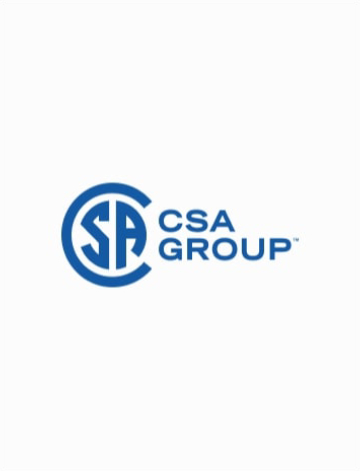CSA Preface
This is the second edition of CSA/ANSI LNG 3.1, Road vehicles — Liquefied natural gas (LNG) fuel system components — Part 1: General requirements and definitions, which is an adoption, with North American deviations, of the identically titled ISO (International Organization for Standardization) Standard 12614-1 (second edition, 2021-06). It supersedes the previous edition, published in 2018 as CSA/ANSI LNG 3.1 (adopted ISO 12614-1:2014).
For brevity, this Standard will be referred to as CSA/ANSI LNG 3.1 throughout.
The North American deviations are intended to
a) correct inaccuracies; and
b) replace references to ISO and IEC Standards with references to U.S. and CSA Group Standards, where applicable.
CSA Group acknowledges that the development of this Standard was made possible, in part, by the financial support of Natural Resources Canada.
This Standard is considered suitable for use for conformity assessment within the stated scope of the Standard.
This Standard was reviewed for North American adoption by the CSA Subcommittee on Liquefied Natural Gas (LNG) Fuel System Components for Liquefied Natural Gas Road Vehicles, under the jurisdiction of the CSA Technical Committee on Natural Gas Transportation and the CSA Strategic Steering Committee on Transportation, and has been formally approved by the Technical Committee and the Interprovincial/Territorial Gas Advisory Council (IGAC).
This Standard has been developed in compliance with Standards Council of Canada requirements for National Standards of Canada. It has been published as a National Standard of Canada by CSA Group. This Standard has been approved by the American National Standards Institute (ANSI) as an American National Standard.
Scope
This document specifies general requirements and definitions of liquefied natural gas fuel system components, intended for use on the types of motor vehicles as defined in ISO 3833. It also provides general design principles and specifies requirements for instructions and marking.
This document is not applicable to the following:
a)fuel containers;
b)stationary gas engines;
c)container mounting hardware;
d)electronic fuel management;
e)fuelling receptacles.
It is recognized that miscellaneous components, not specifically covered herein can be examined to meet the criteria of this document and tested according to the appropriate functional tests.
All references to pressure in this document are to be considered gauge pressures unless otherwise specified.
This document is based upon a working pressure for natural gas as fuel of 1,6 MPa [16 bar1)]. Other working pressures can be accommodated by adjusting the pressure by the appropriate factor (ratio). For example, a 2 MPa (20 bar) working pressure system will require pressures to be multiplied by 1,25.


